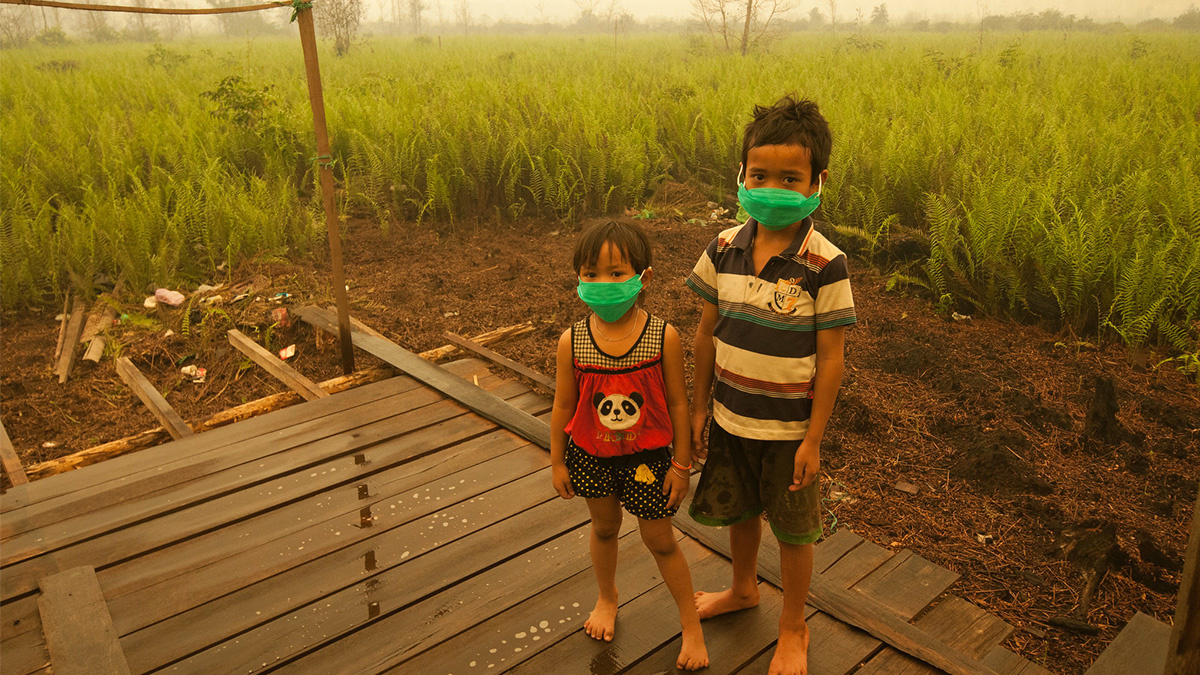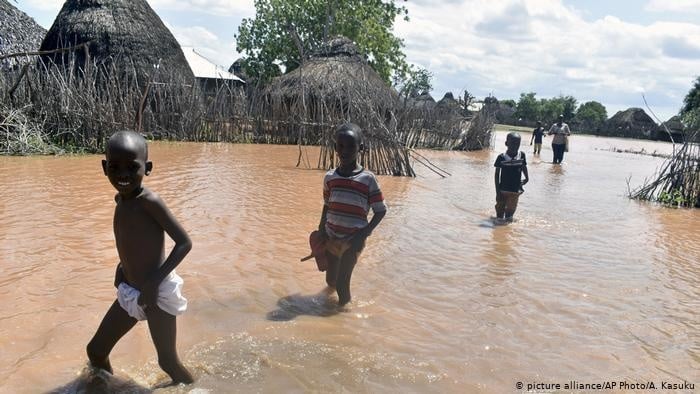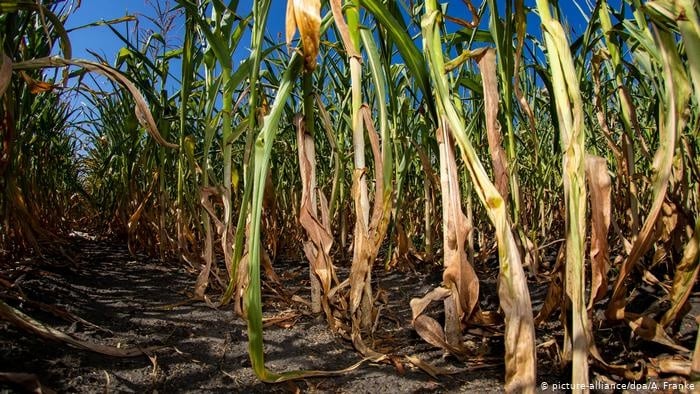
‘Every Child Born Today Will Be Profoundly Affected by Climate Change’

Children are forced to wear masks due to the toxic smoke from peat land fires in Indonesia. Aulia Erlangga / CIFOR
By Irene Banos Ruiz
Pediatricians in New Delhi, India, say children’s lungs are no longer pink, but black.
Our warming planet is already impacting the health of the world’s children and will shape the future of an entire generation if we fail to limit global warming to well below 2 degrees Celsius (35.6°F), the 2019 Lancet Countdown Report on health and climate change shows.
“Over the past 30 years, we’ve seen progressive decline in the numbers of deaths for all people and indeed for children,” Anthony Costello, co-chair of The Lancet Countdown, told DW. “But what we’re worrying about is that all of these gains could go into reverse if we don’t urgently tackle the problem of climate change.”
The research — compiled by 35 global institutions, including the World Health Organization and the World Bank —clearly shows the relationship between climate change, environmental destruction and health. Rising temperatures fuel hunger and malnutrition, an increase in the scale and scope of infectious disease and a growing frequency of extreme weather events, while air pollution has become as deadly to the human lung as smoking tobacco.

Under current emissions, children born today will live in a 4°C warmer world by the age of 71, the report says.
Difficult Access to Food
A baby born today will be exposed to the impacts of climate change from the very start of its life.
Rising temperatures coupled with drought and flooding devastate crops, causing global yields to decline. This deprives people of their livelihoods and pushes up food prices, which in turn leads to hunger and malnutrition, particularly in countries heavily reliant on agriculture, such as Burkina Faso.
“Acute malnutrition in five-year-old children in Burkina Faso is over 10%,” Maurice Ye, a native to the country and advisor to the National Malaria Control Program in Madagascar, told DW. “This will increase if nothing is done to address the problem.”
In India, malnutrition is already the reason for two thirds of deaths in children under the age of five, the Lancet report states.
Although malnutrition is often linked to hunger, it can also be the result of eating too much unhealthy food. As staples such as grains and rice face price hikes, consumers are motivated to buy cheaper, processed foods instead.
“That feeds into the other end of the malnutrition spectrum, which is that of overweight and obesity,” Poornima Prabhakaran, deputy director of the Centre for Environmental Health at the Public Health Foundation of India and contributing author of the report, told DW.
A Deadly Breeding Ground
Under-fives will also suffer most from the increase in infectious diseases. Rising temperatures, warming waters, changing rainfall patterns and high levels of humidity facilitate the spread of bacteria leading to diarrheal diseases such as cholera, and also create ideal breeding conditions for mosquitoes carrying malaria or dengue fever.
In 2017, there were an estimated 435,000 deaths from malaria globally and every two minutes a child somewhere in the world dies from the disease, according to the World Health Organization (WHO).
This is of particular concern for countries such as Burkina Faso, where malaria caused over 28,000 deaths in 2018 alone, the WHO estimates.
But climate change will also allow these disease-carrying mosquitoes to reach new countries, such as those in southern Europe.
Around half of the world’s population is now at risk from dengue disease, the Lancet report says.
If children survive malnutrition and infectious diseases, the research continues, they might not be spared devastating air pollution. This can corrupt their lung function, worsen asthma and increase the risk of heart attacks and stroke.
Outdoor air pollution — from fine particulate matter (PM2.5) — already contributes to 2.9 million premature deaths worldwide.

Extreme weather events are also becoming the new normal in European countries.
Heat and Cold Hit Hard
The health of a child born today could equally be damaged by extreme weather events such as wildfires and heat waves.
152 out of 196 countries have experienced an increase in people exposed to wildfires since 2001, which has resulted in direct deaths and respiratory illness. Record-breaking high temperatures, in turn, are of particular concern for elderly people over 65-years-old.
“Heat health impacts include heat exhaustion, heat stroke and aggravation of already existing morbidities from cardiovascular illness and respiratory illness,” Prabhakaran said.
Heat can also lead to dehydratation in children and the elderly, experts say.
Although the world is warming, cold also represents a risk for people with little or no access to energy. “It kills more people than the heat overall,” Costello said. “But a lot of that is due to social factors.”
As inequalities are growing worldwide, more people find themselves in situations of vulnerability, he said.
An Urgent Coal Phase-Out
Prabhakaran hopes health impacts will be the turning point for reluctant policy makers.
“What we need to do is bring health in the center of discourse, the health impacts of fossil fuel combustion can be a strong argument for phasing out coal,” she said.
The three experts agree that the first step to reducing the suffering of every child born today is a shift to a decarbonized world. It is technically feasible, they say, but will take tougher policies and genuine political will. Inaction is no longer an option.
“It’s set to get much, much worse unless we take immediate action,” Costello said.
Reposted with permission from DW.
- 77 Health Organizations Call for Climate Action to Fight Public ...
- Major Health Study Shows Benefits of Combating Climate Change ...
- Black Infants More Likely to Survive if Treated by Black Doctors, Study Finds - EcoWatch
- The Climate Crisis Is Already Killing People, New Lancet Report Warns - EcoWatch
- Climate Change Is Harming Children’s Diets Globally, Scientists Warn - EcoWatch

 233k
233k  41k
41k  Subscribe
Subscribe 